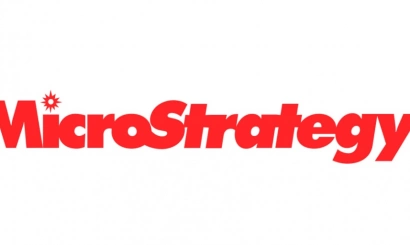Getting into someone else's wallet. Who needs anonymity in cryptocurrencies?
Cryptocurrency exchange Binance has opened registration for the sale of tokens of the controversial Arkham blockchain project
The launch of a new platform for trading data about cryptocurrency wallet owners has raised questions about the ethics of disclosing such information
On Monday, July 17, the exchange Binance opened registration for the preliminary sale of tokens of the blockchain project Arkham. However, the service, in which the developers plan to leverage the token after the launch, has caused a controversial reaction in the crypto community and provoked a number of existential questions.
Arkham Intelligence has developed its own platform to visually analyze data in the most popular blockchains. It can be used to view data about cryptocurrency wallets and the movement of funds, match wallet owners, and analyze their actions. This is applicable, for example, for investors when studying the chain of transactions of successful traders, or for exchanges and law enforcement agencies when tracking the movement and conversion of stolen cryptocurrency.
Wide functionality and a successful marketing strategy, including a referral system and airdrop (free giveaway) of future tokens, helped the project attract a user base.
Along with the announcement of the launch of the token with the ARKM ticker and its distribution via airdrop and presale on the Binance Launchpad platform, the developers also announced the launch of the Arkham Intel Exchange marketplace, where the token will be used. The marketplace will feature a data marketplace where buyers will be able to bid for information that can be obtained from analyzing crypto wallets, including the identification of specific individuals who own these wallets. The service itself is promoted under the banner of "de-anonymizing the blockchain."
This provoked a wave of discontent in discussions on social networks, and the company was accused of an unethical approach to personal data and privacy. While data on all blockchain transactions is public, it is often difficult to link them to real people, and privacy is a fundamental factor for many when using cryptocurrencies as opposed to existing banking and payment systems.
"Spying on your neighbor."
There is no direct prohibition on "de-anonymizing the blockchain," but it is related to the personal data of users on the network who have clearly not consented to someone outsider gaining access to it, comments the director of investigations at cryptocurrency asset security service SHARD. In his opinion, it will be important to distinguish between the personal data of users on this platform and those they have provided to exchanges.
"From an ethical point of view, this approach encroaches on the basic principles and fundamentals of blockchain - confidentiality and simultaneous transparency," the expert explains. - When law enforcement agencies receive information about users' accounts on exchanges, it becomes a kind of restriction of rights for the sake of the common good. In the situation with the sale of data, not everything is so clear: sellers and buyers operate with other people's data, which is not always obtained in a legal way.
The world of cryptocurrencies "in general is not very ethical," where personal responsibility for one's savings rules, agrees CEO Cheelee. But such a service may be in demand for many users - when studying new projects, for due diligence, for detecting fraudulent schemes. The platform then acts as "a kind of certification center," but certification becomes more decentralized and falls on the shoulders of all users.
"On the other hand, I don't think anyone would be happy to discover themselves and their wallet in such a database. This increases the risks that a person will become the target of an attack by fraudsters who will know who the owner of the wallet is and how much money he or she has."
Law enforcement agencies, cryptocurrency tracking systems, or private researchers may be interested in such a platform. In his opinion, it is still hard to say whether this will encourage ordinary users to "spy on their neighbor." At an early stage, the use of the service will be limited to a narrow circle of users, the expert believes.
Who needs anonymity
"I believe that privacy will remain a high priority in the world of cryptocurrencies. The mass user may not need anonymity, or maybe he does, but he doesn't realize it himself." The need for anonymity, he believes, comes at a time when "something has already happened for lack of it."
Cryptocurrencies were created as an alternative to centralized systems; many users want to remain anonymous and are not eager to disclose data about themselves and their transactions. On the other hand, regulators are pursuing policies aimed at disclosing user data for the sake of their own safety, introducing mandatory "know your customer" (KYC) procedures on platforms to identify malicious users and hold them accountable.
A promising technology that would help both sides, according to Osipov, is the Zero Knowledge Proof (ZK) protocol. With its help, it is possible to develop a technological solution that balances the privacy of an individual with the general public by allowing limited fragments of data to be disclosed to government agencies.
The battle between regulators and adherents of anonymity in cryptocurrencies continues, with more and more new tools and techniques emerging to address both data disclosure and, conversely, anonymization. The bias to one side or the other depends on the efforts and funds invested in these processes, the expert summarizes.
- BlackRock's head calls it necessary to make Bitcoin transactions cheaper
- Danish financial regulator ordered Saxo Bank to get rid of crypto assets
- Experts said the Bitcoin exchange rate has lost its connection with the U.S. stock market
- Hong Kong authorities have called for the release of a USDT and USDC rival stablecoin
- Cryptocurrency updates and conferences. Main events of July
- Australian offices of Binance were searched
- BCH and WAVES almost entirely occupied the trading volume on Korean crypto exchanges






